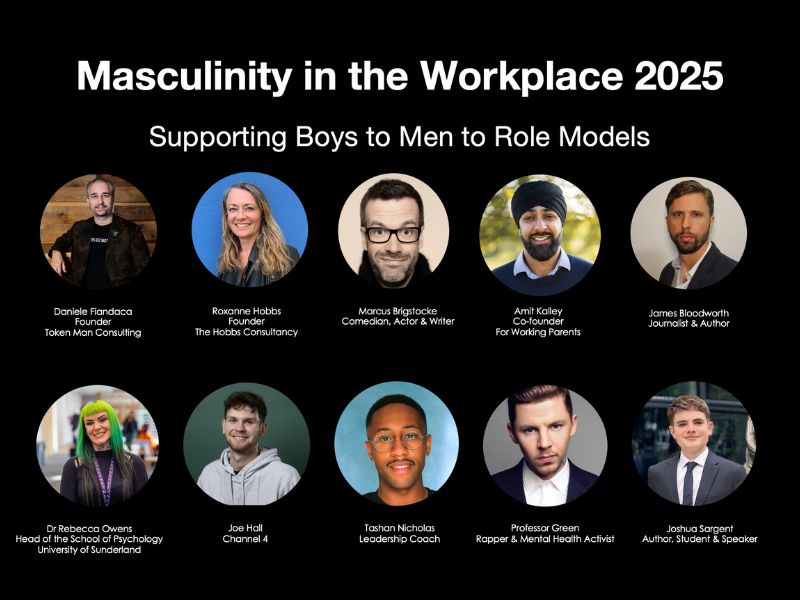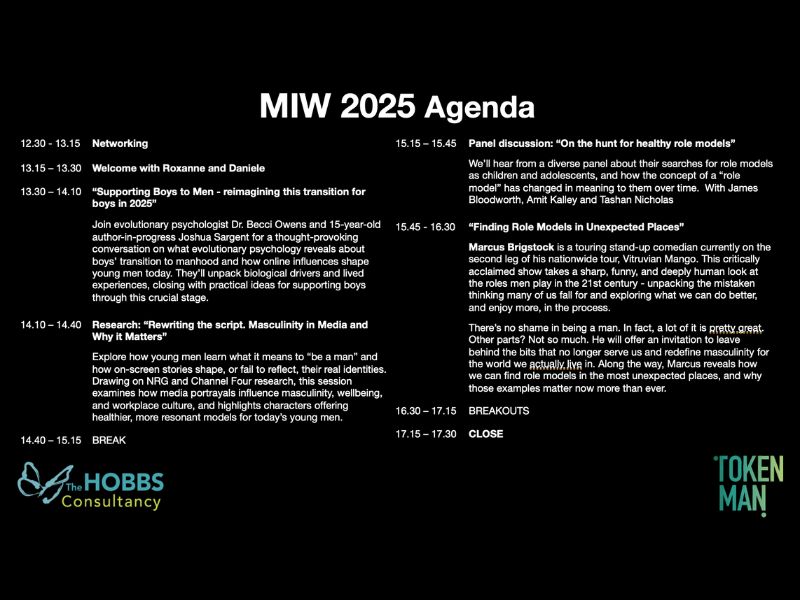
More than ever, today’s boardroom’s are recognising the importance of cognitive diversity.
Cognitive diversity is about taking ideas from outside your usual frames of reference and applying them to everything: from everyday problem-solving to winning new business.
I firmly believe more women should be applying for non-executive roles because we can often approach problems or issues from a different perspective to men.
While breaking into the non-executive world has its challenges, if you’re capable of bringing your expertise to an organisation then believe me – organisations are desperate for people like you.
So, how do you crack that first non-executive role?
Organisations will usually have an idea of some of the characteristics and skills they’re seeking, but it may not be entirely obvious when reading the job description or advert.
Before starting the application process, show the organisation the respect of taking the time to understand them. Make an effort to understand their values and the direction the organisation is heading in. What can you contribute to their stated mission? What about your profile makes you uniquely qualified to make an impact?
Once you have an understanding of the organisation’s values and what they’re looking for, your job is to create a clear, compelling narrative that demonstrates precisely how you can contribute to their organisational outlook.
In your first approach, you will need to map out the skills and values you possess that make you a perfect match for their organisation. Furthermore – and crucially – you must explain why you want the role. That organisation wants to feel special and not just a number on your application hitlist. A well-crafted first contact can illustrate that you’ve done your due diligence and feel confident that you have expertise they need.
Our understanding of the value of diversity has developed at extraordinary speed over the last decade. People and organisations alike are increasingly realising how diversity strengthens an organisation at every level.
But increasing diversity is a broad stroke of a hiring policy, and organisations must define their goals with as much specificity as possible in order for them to be effective. An interesting development I’ve noticed over the past five years is the increased consideration of invisible diversity, which is now finally being recognised with equal importance to visible diversity. What’s the difference, though?
Visible diversity can be defined as the differences which are immediately observable when you look at someone.
Invisible diversity refers to traits that are not readily ‘seen’. These can span across a broad range of experiences and values, and by focusing on such differences we shift the discussion from “how can we increase gender and racial diversity?” to “do we have the variety of diverse perspectives to deal with complex problems and create innovative solutions?”
With this in mind, take the time to consider what makes your experience or perspective unique, and how it will be beneficial to their organisation.
At the preliminary stages of an application process, there’s often a clear divide in self-belief between men and women.
In my experience, women will often see a position they’re well suited to but are quick to be discouraged by elements of the job description that don’t fit their profile. This leads them to not push as hard for the role, or not to push at all. Conversely, men tend to focus much more expressly on what makes them a great match, and these considerations boost their confidence as they proceed.
At the earliest application stages, it’s not just about selling yourself to the organisation. It’s about selling that organisation to yourself.
You may have to push on a few different doors before you land that first non-exec role. Unfortunately, the first door is rarely the one that opens, however each unsuccessful approach offers a vital learning experience to boost your resilience and refine your tactics.
Your perseverance will always be your best tool to landing that first non-exec position.
In my work as a recruiter, I am seeing numerous boards taking steps to improve diversity, which means there are more opportunities than ever before for women to enter the non-executive world.
An organisation’s push for diversity can often be seen as a politically correct move, but diversity of thought has a far more significant impact than simply ‘ticking a box’. Including a wider scope of experiences and skill sets in a team brings genuine value to an organisation, and vastly increases the potential for innovation and new solutions.
To this end, women should feel empowered to apply for non-executive roles and pride themselves on bringing to the boardroom their unique and fresh perspectives.
Now is your chance, so go out there and make an impact.
 About the author
About the authorWith over 18 years’ experience Helene has appointed to senior roles within the arts, health and education fields as well as central and local government. Over the last ten years, she has specialised in the appointment of executive and non-executive directors in the NHS covering acute, ambulance service, primary care, mental health and regulatory bodies as well as national organisations such as NHS England and Healthwatch
November
06nov10:0015:00CPD Accredited Menopause Champion Course
06/11/2025 10:00 - 15:00(GMT+00:00)
Join us on our CPD Accredited Menopause Champion Course Our course includes practical tools, DEI considerations and step-by-step guidance to help Champions feel confident and equipped to offer real support — not just awareness. Here’s what’s included: Understanding Menopause
Our course includes practical tools, DEI considerations and step-by-step guidance to help Champions feel confident and equipped to offer real support — not just awareness.
Here’s what’s included:
Understanding Menopause
– Key stages and common symptoms
– How menopause impacts work and wellbeing
Diversity in Menopause
– Different experiences across cultures, health, age, and gender identity
Managing Menopause
– Overview of HRT, natural options, and practical strategies
Navigating GP Appointments
– How to self-advocate, track symptoms, and prepare for appointments
Supporting Colleagues
– Fostering openness, having sensitive conversations, and making adjustments
Creating Menopause Action Plans
– Step-by-step template to ensure support and inclusion
Championing Inclusion
– Guidance for supporting neurodivergent, disabled, diverse, LGBTQ+, and frontline staff
Your Role as a Champion
– Responsibilities, boundaries, signposting, and building trust
The course also includes:
✅ A Menopause Action Plan template
✅ Navigating GP Appointments document
Plus loads more free resources!
DATE: Thursday 6th November
DATE: Wednesday 17th December
Place: Zoom
Time: 10.0am – 3.00pm
Cost: £395 (including certificate)
19nov10:0013:00MenoMinds – Free Training for Women in Business | Menospace & Minds That Work
19/11/2025 10:00 - 13:00(GMT+00:00)
Introducing MenoMinds – Free Training for Women in Business We’re excited to share MenoMinds, a fully funded programme created by Menospace and
We’re excited to share MenoMinds, a fully funded programme created by Menospace and Minds That Work, supporting women in business, freelancing, or entrepreneurship through the emotional and mental challenges of menopause.
Wednesday 19th November | 10:00am – 1:00pm (UK)
Live on Zoom | 💷 Free (funded by NEBOSH’s Social Purpose Programme)
Menopause can affect confidence, focus and wellbeing — MenoMinds helps you take back control with practical tools and a supportive community.
You’ll explore the CARE Framework:
Includes a digital workbook and invitation to monthly community groups on sleep, nutrition and stress management.
Freelancers, entrepreneurs, and women in small or micro-businesses (under 50 employees).
Facilitators: Haley White (Menospace) and Victoria Brookbank (Minds That Work)
19nov12:3018:00Masculinity in the Workplace - 2025 (In-person)
19/11/2025 12:30 - 18:00(GMT+00:00)
Conway Hall
25 Red Lion Square, London, WC1R 4RL
Brought to you by Token Man and The Hobbs Consultancy. Welcome to Masculinity in the Workplace, designed specifically to

Welcome to Masculinity in the Workplace, designed specifically to engage men with creating inclusive cultures. Marking International Men’s Day, the objective of our event is to give men both the reason and the skills to lean into the conversation, while also providing women and non-binary people with the confidence to engage more men in culture change. Because ultimately we can only make real change by working together.
Date: Weds Nov 19 2025
Time: 12.30pm to 6pm
Location: Conway Hall, 25 Red Lion Square, London, WC1R 4RL
Our speakers will share their insights and experiences, shedding light on the evolving dynamics of masculinity, leadership and culturein diverse work environments. You’ll have the chance to ask questions, participate in interactive sessions, and network with like-minded professionals.
The theme for this year is ‘Supporting Boys to Men to Role Models’. This year’s event will seek to understand the concerns and barriers that are in the way for boys and men, particularly looking at key inflection points in their lives. It will equip parents, leaders, friends and persons of significance in the lives of young men with the tools for self-reflection, effective role modelling and courageous conversations..
It will suggest that status-seeking and risk-taking behaviours are innate as boys become men, look at how this shows up for boys in 2025 and question what support could help these boys have a more positive initiation in to adulthood so that they are ready for the workplace. We know that there is a reverse gender pay gap and that schools aren’t preparing students in the same way to enter the professional workplace – what needs to be done?
We will look at the behaviours that are role modelled by men once they are in the workplace. Is it healthy for us to look for male role models, or is a search for positive behaviours more effective? What can we learn from how men are represented on screen and in the media? And what can we do to support our men once they are in the workplace?
This site is for the in-person experience. Otherwise you can register for the online version here.
FYI – lunch will not be provided

This event is for anyone passionate about creating more inclusive, equitable, diverse and human workplaces, and we welcome attendees of all identities and expressions.
Historically, our audience has included around 60% men and 40% women or non-binary people, with a wide range of roles and lived experiences.
This year, we’re especially keen to welcome CEOs, HRDs, CMOs, Inclusion & Diversity leaders, People & Culture teams, and anyone working to engage men more effectively in their organisations. Whether you’re a parent, people manager, or someone invested in systemic culture change, this event is for you.
By attending, you’ll be joining a growing community of people committed to reshaping masculinity, unlocking allyship, and building workplace cultures where everyone can thrive – from boys and young men to senior leaders and everyone in between.
20novAll DayDigital Transformation Conference
20/11/2025 All Day(GMT+00:00)
Mercure London Earls Court
London
Ready to transform your business in the digital age? The upcoming Digital Transformation Conference UK promises an exceptional opportunity for leaders who want to accelerate change, embrace innovation and shape
Explore how industry leaders are redefining digital and business transformation. Learn proven strategies, gain fresh perspectives, and connect with peers shaping the future of technology and enterprise. Tactical & practical content to drive your transformation efforts.
Throughout the day, delegates can look forward to a diverse programme of content exploring every aspect of digital transformation, business change, and innovation. Hear best practices, lessons learned, and insights into real-world challenges from leaders driving progress across digital, technology and IT.
If you’re a C-suite leader, head of innovation, transformation or IT, this is the place to be. Whether you’re just starting your journey or looking to scale up, you’ll leave with fresh ideas, new contacts and a renewed sense of direction.
